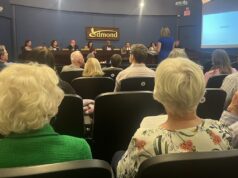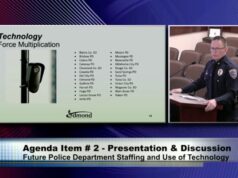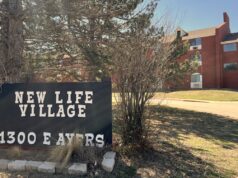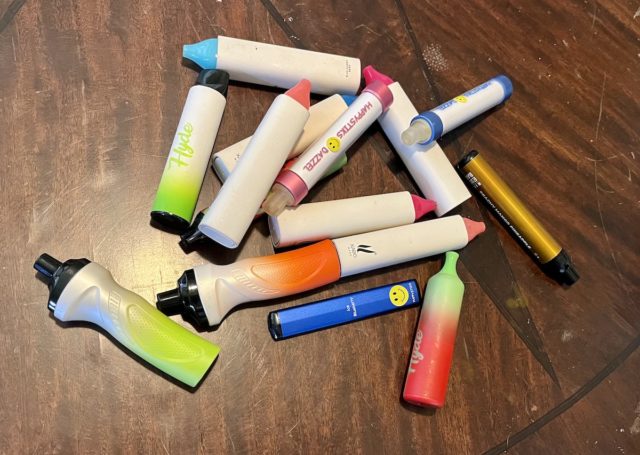

Starting in November, a new state law will require individuals under 21 to complete an education or tobacco use cessation program — rather than pay a fine — if they are caught with tobacco, vape or nicotine products.
This new law modifies existing PUP laws (laws prohibiting the possession, use and purchase of tobacco products by minors), which impose a $100 fine. Currently, if the fine is not paid within 90 days, the Alcohol Beverage Laws Enforcement Commission (ABLE) notifies the Department of Public Safety to suspend or not issue a driver’s license to the violator until the payment has been completed.
The new measure passed during the 2022 legislative session, and Rep. Melissa Provenzano (D-Tulsa) and Rep. Cynthia Roe (R-Lindsay), who co-authored HB 3315, say it allows for minors to receive education on the risks of nicotine products, rather than passing a fine on to their parents. Sen. Mark Allen (R-Spiro), who did not run for reelection in 2022 owing to term limits, was also a co-author.
“I think anytime you could do restorative justice instead of hang a fine or fee on a kid, then you’re doing good,” Provenzano said.
According to the statute, the education or tobacco use cessation program will be approved by the State Department of Health. The ABLE Commission shall establish rules to provide for notification to a parent or guardian of any minor cited for a violation of this section.
Roe said she hopes the change will convince minors not to use tobacco or vape products.
“We felt like if we could hit these kids with education programs, then we can deter them from smoking and vaping,” Roe said.
‘What-ifs’ present in state PUP law
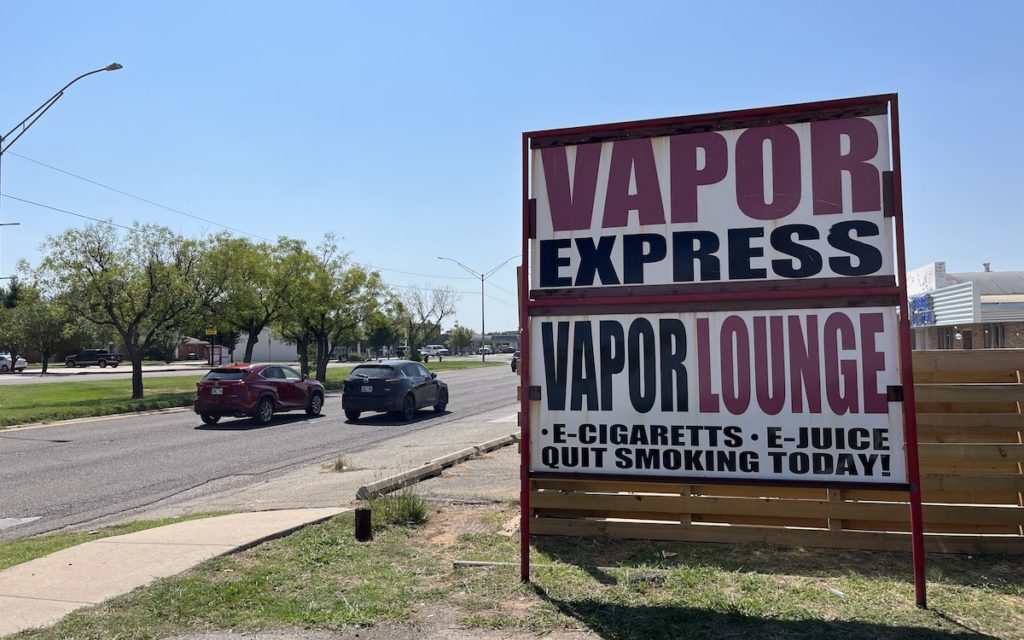
The incoming state law is similar to a program that has been administered in Edmond since August 2021. The city’s municipal court currently offers minors who are caught with vape or tobacco products the option to complete an online educational program called ASPIRE (A Smoking Prevention Interactive Experience) or pay a $130 fine and $50 in court costs.
In exchange for completing the program, the municipal court drops the fine, and violators (or, typically, their parents) pay only the court costs.
According to data received from Edmond Municipal Court, 151 total citations for PUP violations have been issued since ASPIRE launched 13 months ago. Of those, 102 minors completed ASPIRE, 44 declined to complete the program and chose to pay the full fine, and the remaining five were either dismissed or costs were voided owing to financial circumstance.
The age breakdown of minors who completed ASPIRE shows greater participation among younger teenagers:
- Age 13 and younger: 20
- Age 14: 25
- Age 15: 25
- Age 16: 24
- Age 17: 6
- Age 18: 2
Diane Slayton, Edmond’s presiding municipal judge, said Edmond’s program has been “relatively successful.” However, she is concerned about the state law taking effect and superseding the municipal law, as there are questions about enforcement.
“My understanding is (ABLE’s) hands are tied as well after November, other [than] to send a letter and tell the parents, ‘Look, you can do a vaping class if you want to,'” Slayton said.
Roe said there are still some “what-ifs” within the state law to work through.
“Some of the what-ifs are like, what if you have a kid that just refuses to do it? Well, there’s nothing in there to deal with that,” Roe said.
Roe said she is looking at adding a community service component for repeat offenders or minors who refuse to complete the program.
“I made a commitment to everyone that I would work on this going forward,” Roe said. “And I have been. I just don’t know exactly what it’s going to look like yet.”
Provenzano said she believes enforcement and other issues will eventually get worked out.
“Just like any program, there are going to be kinks, but I don’t imagine that it’s going to be too troublesome,” Provenzano said.
Roe said she does not want youth tobacco and vaping use to serve as a “cash cow” for municipalities and court systems.
“I truly want these kids not to smoke. I don’t want it to be a money-maker for municipalities or courts or whatever,” Roe said. “I truly want these kids to quit smoking, because we’re at the bottom of the barrel on our health outcomes.”
On that point, Slayton agrees. Slayton said she “works with” families who cannot afford to pay court costs “all the time.”
“I don’t want their money. I want the kids to stop vaping,” Slayton said. “All I want is for them to realize it’s sort of a big deal.”
Provenzano: Vapes are ‘pervasive’ in schools
Provenzano said during her time working as a principal and assistant principal in Tulsa Public Schools, vapes were “pervasive.”
“In particular, vapes were much more popular, and so many kids had them, but all we were really doing is ticketing them,” Provenzano said. “That didn’t really change the behavior, per se. What we needed to do was educate.”
According to data, vapes are still pervasive in schools. Between August 2017 and May 2021, there were 822 recorded incidents involving tobacco, vape or e-cigarette products in Edmond Public Schools, according to EPS records. Of those 822 instances, 712 involved vapes or e-cigarettes, and, of those instances, 139 involved middle schoolers and 10 involved elementary schoolers.
Follow NonDoc’s Edmond coverage:
In a statement to NonDoc, Edmond Public Schools director of communications Susan Parks-Schlepp said EPS believes the ASPIRE program has been successful for its students since its introduction in 2021.
“Our conclusion is primarily anecdotal. Information about students who receive a second tobacco offense following completion of the ASPIRE program is available, however, it has been some time since the district has closely examined that data,” Parks-Schlepp said. “Edmond Public Schools will be eagerly anticipating the enforcement of the State Department of Health’s tobacco use cessation program for minors. As defined in HB 3315, we will share the information about the program with students caught in possession of tobacco/vape products in the hopes it may benefit them.”
JUUL Labs agrees to pay $438.5 million in settlement
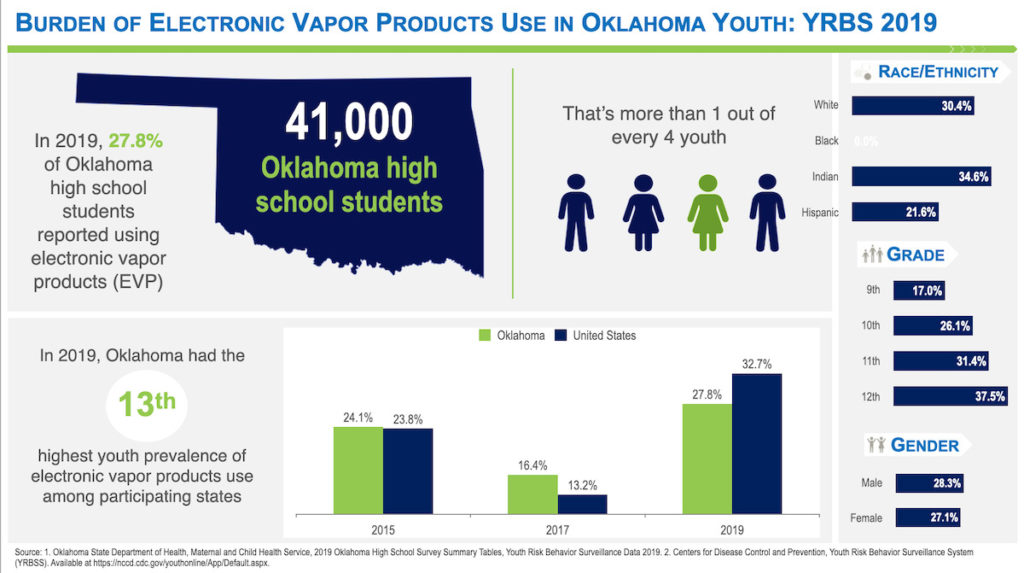
Attorney General John O’Connor announced Sept. 8, that JUUL Labs, a leading e-cigarette manufacturer, has agreed to pay $438.5 million to 34 states and territories — including Oklahoma — to settle a two-year probe into the company’s marketing campaigns that appealed to youth. Of the $438.5 million, Oklahoma will receive approximately $8.9 million. Texas Attorney General Ken Paxton launched the multi-state investigation in February 2020.
The payout will occur over a period of six to 10 years. If JUUL chooses to extend the payment period to 10 years, the final settlement would reach $476.6 million. The agreement also includes injunctive terms, requiring JUUL to refrain from youth marketing, depicting people under 35 years old in advertisements and misrepresenting nicotine content, among other terms.
According to data collected by the Oklahoma State Department of Health, 27.8 percent of Oklahoma high school students reported using vape products in 2019. That same year, Oklahoma had the 13th highest prevalence of youth vape use among states participating in data collection.
From her perspective as a municipal judge, Slayton said she believes the ASPIRE program in Edmond has been helpful.
“I thought we were doing pretty well,” she said. “We did not have very many repeat offenders. Does that mean they weren’t vaping, or they didn’t get caught? I don’t know. I can’t answer that.”









